By Michael Kluckner
Michael Kluckner is a writer and artist with a list of books that includes Vanishing Vancouver and Toshiko. His most recent book is a graphic novel called 2050: A Post-Apocalyptic Murder Mystery. He is the president of the Vancouver Historical Society and a member of the city’s Heritage Commission.
We inherited a player piano when we bought our house in 2010. It’s a long story, but in the back of my mind I thought I might want to play it. As it turned out I didn’t, but try to find a new home for an old piano nowadays!
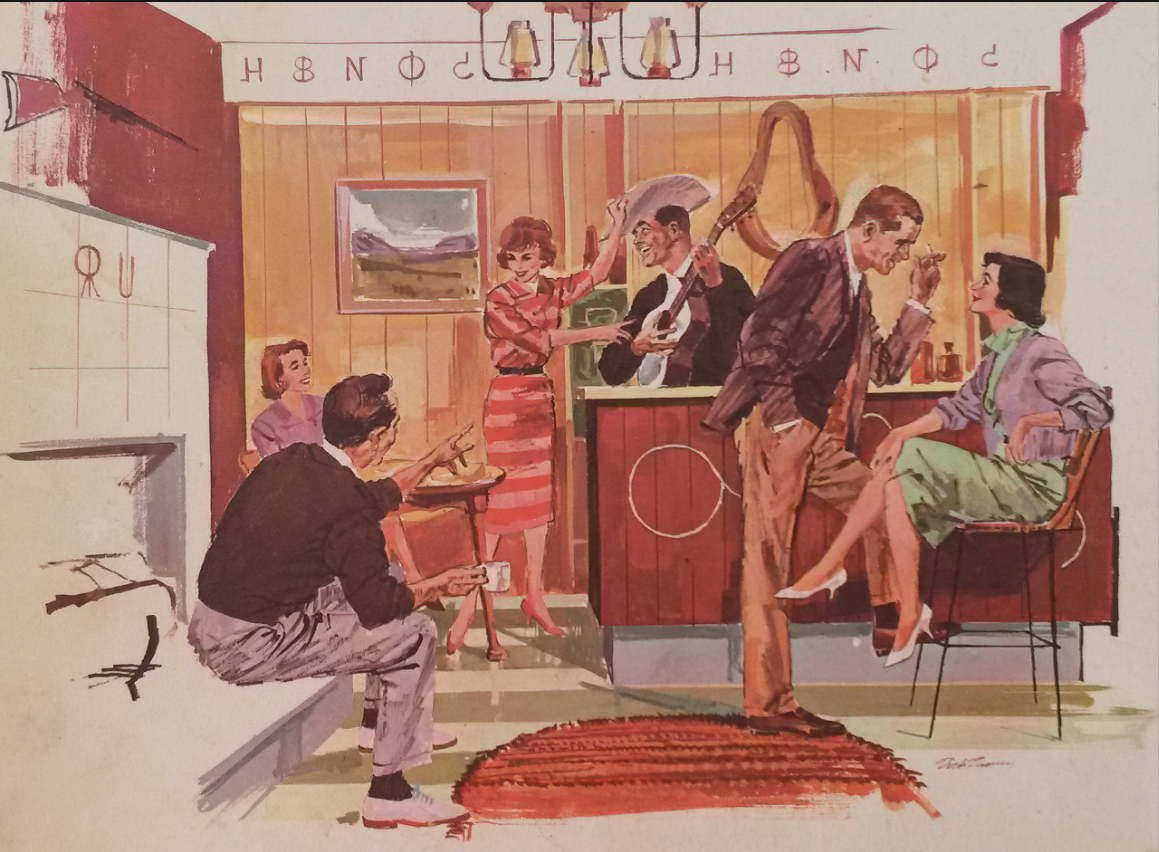
Our hundred-year-old Grandview house also contained a postwar classic—a panelled “rec room” in the basement where the piano lived. They were so popular that Canadian Forest Products’ New Westminster plywood division published a plan book in 1961, offering homeowners six themes to choose from—Contemporary, Western, Polynesian, Tavern, (Artist’s) Salon, and Marine. This was an era of casual entertaining at home, dancing to LPs on the hi-fi or watching TV and drinking. Three of the six plans include a bar.
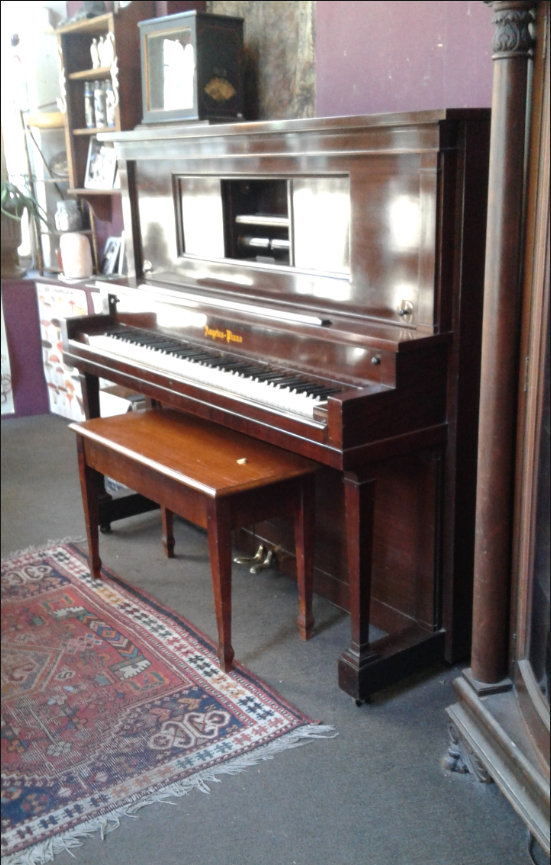
Our player piano came with dozens of music rolls—popular arrangements of classics and some show tunes like The Sound of Music. As most readers will know, the piano “plays itself,” powered by a “pianist” who pumped on foot pedals, causing the perforated roll to pass over a drum and triggering an ingenious multitude of cogs and arms that made the hammers hit the strings in the correct order.
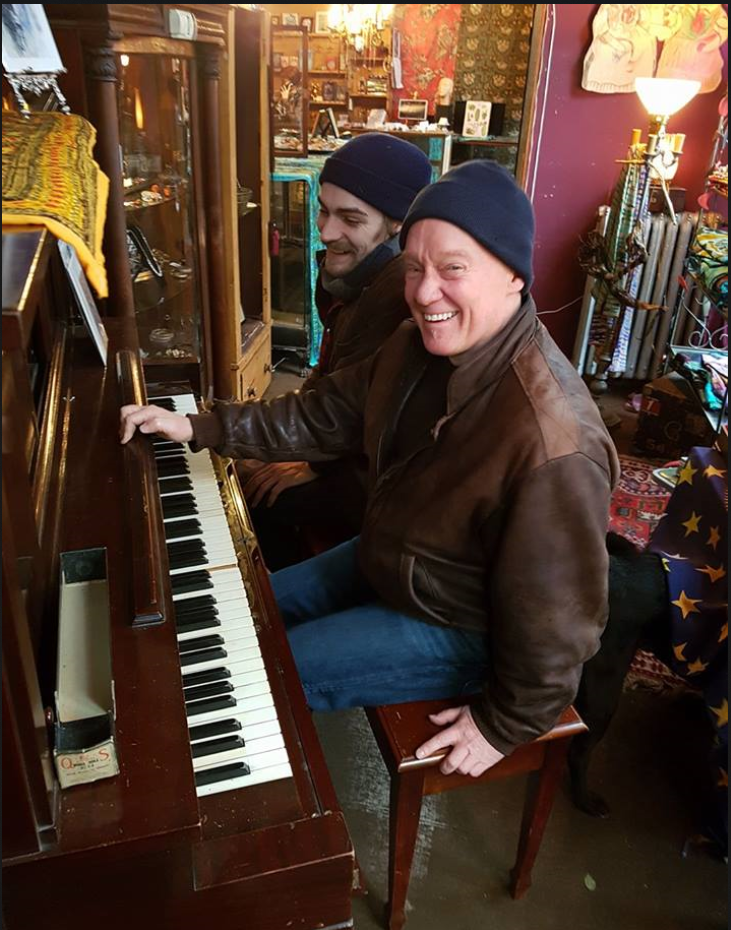
Salmagundi. Photo Diane Farnsworth, December 2017.
Player pianos are classic Victoriana, a great example of that era’s fascination with complex gizmos like steam engines. A skilled pianist could actually play accompaniment to the piano-roll tune; more likely, most people pedalled away, watched the keys go up and down, and sang along. It probably made its way to our house in the ’50s.
After years of trying, we had all but given up finding the piano a new home, but then Tom Carter joined the board of the Vancouver Historical Society. Tom is a musician and artist with a keen interest in entertainment history. He came over and saw it, got it playing, hired a rebuilder to fix it up, and said he would love to have it—the only problem being that he already has a grand piano in his home.
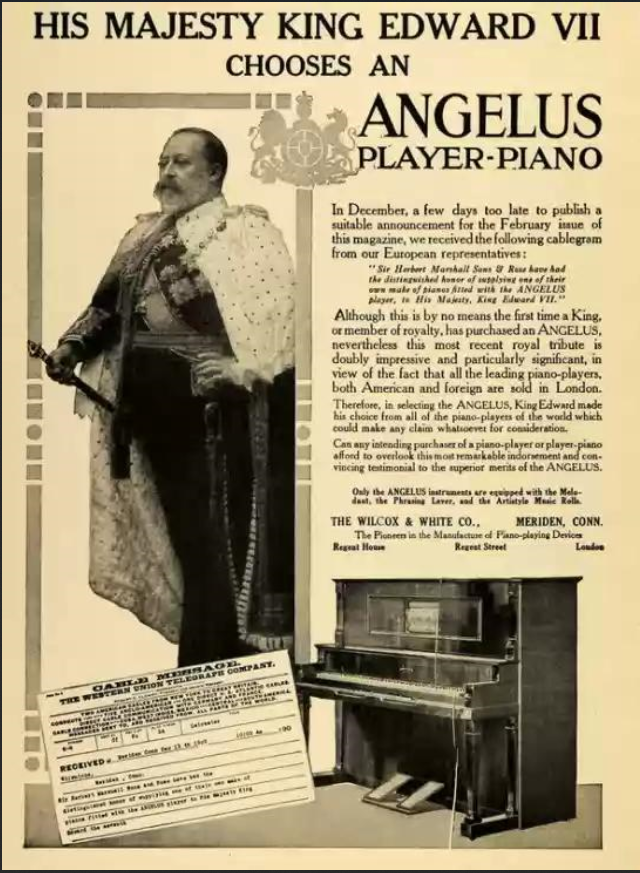
No problem, he said, he’d find it a home.
Along the way, Tom researched its history. It’s an Angelus, probably from 1915–20. New, it was worth about $950, or double the price of a Model T Ford and about equivalent to the annual income of a skilled tradesman.
Watch and listen here: tomhighres
Player pianos were the home-entertainment centre of the day, a kind of transition between the skilled pianist (usually a woman) of 19th-century family gatherings to the hi-fi and, in this era, the TV that has now become the home theatre.
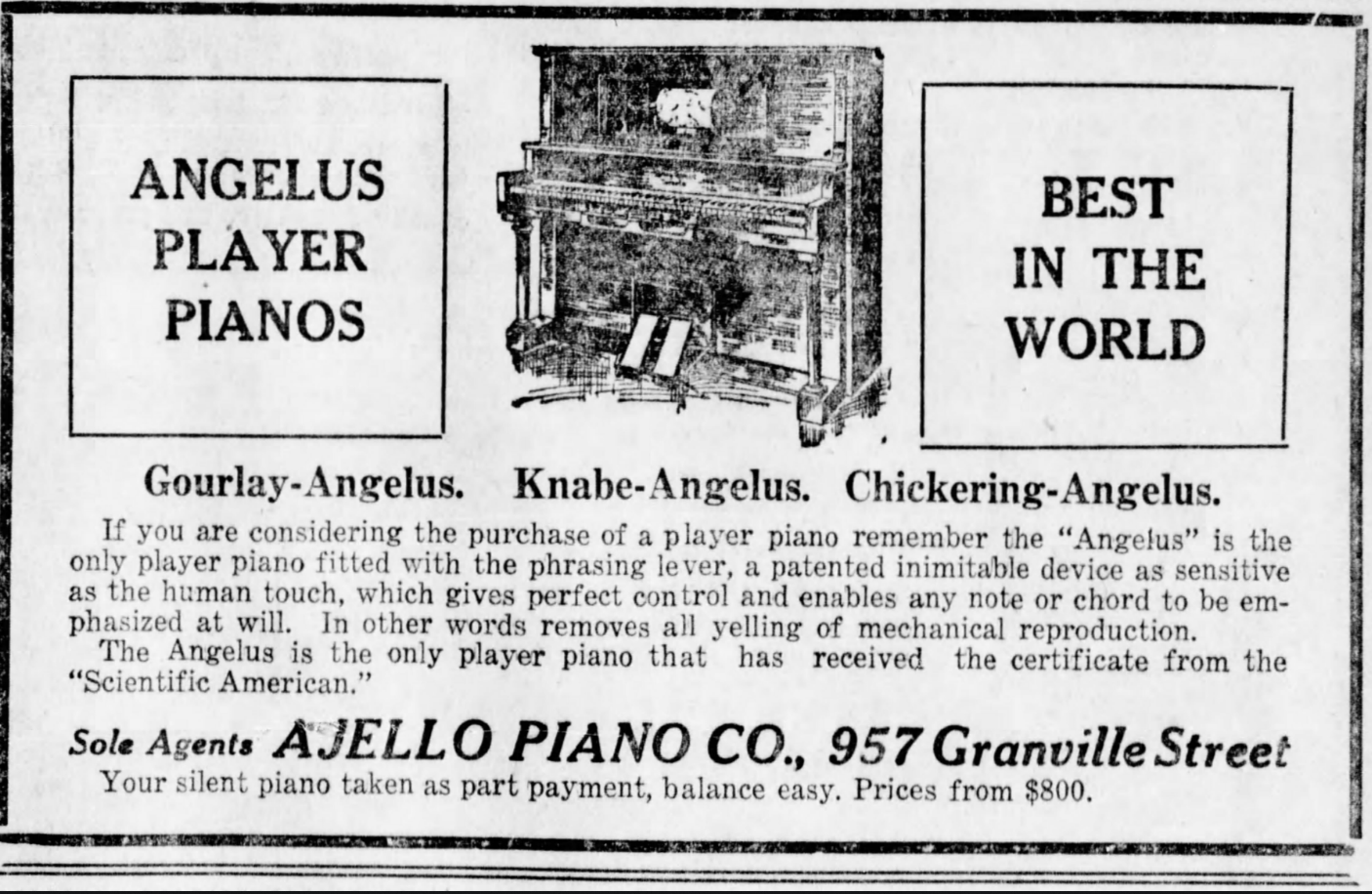
At the time of writing, the player piano was living at Salmagundi on West Cordova in Gastown. But last month, after 45 years in business, proprietor Anne Banner had the lease terminated and will be vacating the premises at the end of this month. The piano will be going to another temporary home in White Rock where it will be restored and rebuilt. EL




7 comments on “Saving History: The Rec Room and the Player Piano”
A friend of mine had a log cabin on a piece of property on the Sask. River inside of the Edmonton city limits. The two features inside the cabin were an enormous stone fireplace and a player piano. When my buddy came to Vancouver we would scour the junk stores up and down Main St. looking for rolls for his player piano. Those junk stores on Main St were almost like going to a museum.I wonder if they are surviving in these days of property taxes gone wild? Any ways the city of Edmonton expropriated the property and the log cabin was demolished. Ill be emailing my friend soon to find out what he did with the piano.
My father was a jazz combo pianist in London before WWII and got a day job with BC Electric when he was demobilized and moved to Vancouver with his bride in 1946. He continued to play throughout his life and I have vivid memories of us as a family singing Christmas carols around the “Baby Grand” in our Kerrisdale living room, and of their friends with their rye & 7s and cigarettes having sing-alongs when their parties became more raucous as evenings progressed, and my brother and I helping with drink orders and emptying ashtrays until Mom noticed we were still up and sent us to bed.
That was such a period for people entertaining at home, as I mentioned in the post above, of “people making their own fun.” It also speaks to a period when people had detached houses that supported a kind of family life that has largely disappeared. Sic transit gloria mundi.
“First we design our buildings, then they design us,” as Winston Churchill may have said.
There was a player piano store on Dunbar and 18th Avenue in the 1970s.
Lots of paper rolls still made and sold on the intertubes.
Some stores in town have the modern Yamaha Disklavier electronic piano. (One plays in the centre of Oakridge Mall).
Ours is a 1906 Bell upright. Built in Guelph Ontario and, according to the stamp inside the piano,
“expressly selected and voiced for the Montelius Piano House in Vancouver B.C.” . In our roll collection we have a couple that came from the store in Dunbar which was operated by Doyle H. Lane, and another from the Ross Piano House on Hastings Street. After 112 years, there are a few minor repairs needed but the old piano still plays well, a testament to the original craftsmanship.
We have a Gerhard Heintzman piano (made in Toronto) that was converted from a player piano to a regular piano. The rollers and the glass window was removed. That said, it’s still heavy as hell because it is very deep in order to accommodate the player pieces! We had to put it in the living room which has French doors becauseit did not fit through any of the other doors on the main floor. It was neat to read that one could accompany a player piano in a duet. Thanks for the read!
I don’t envy you come moving time
[…] Kluckner gave a delightful presentation on the history of the rec room and, in particular of the player piano. More specifically, it was about the player piano he and his partner inherited on buying their […]